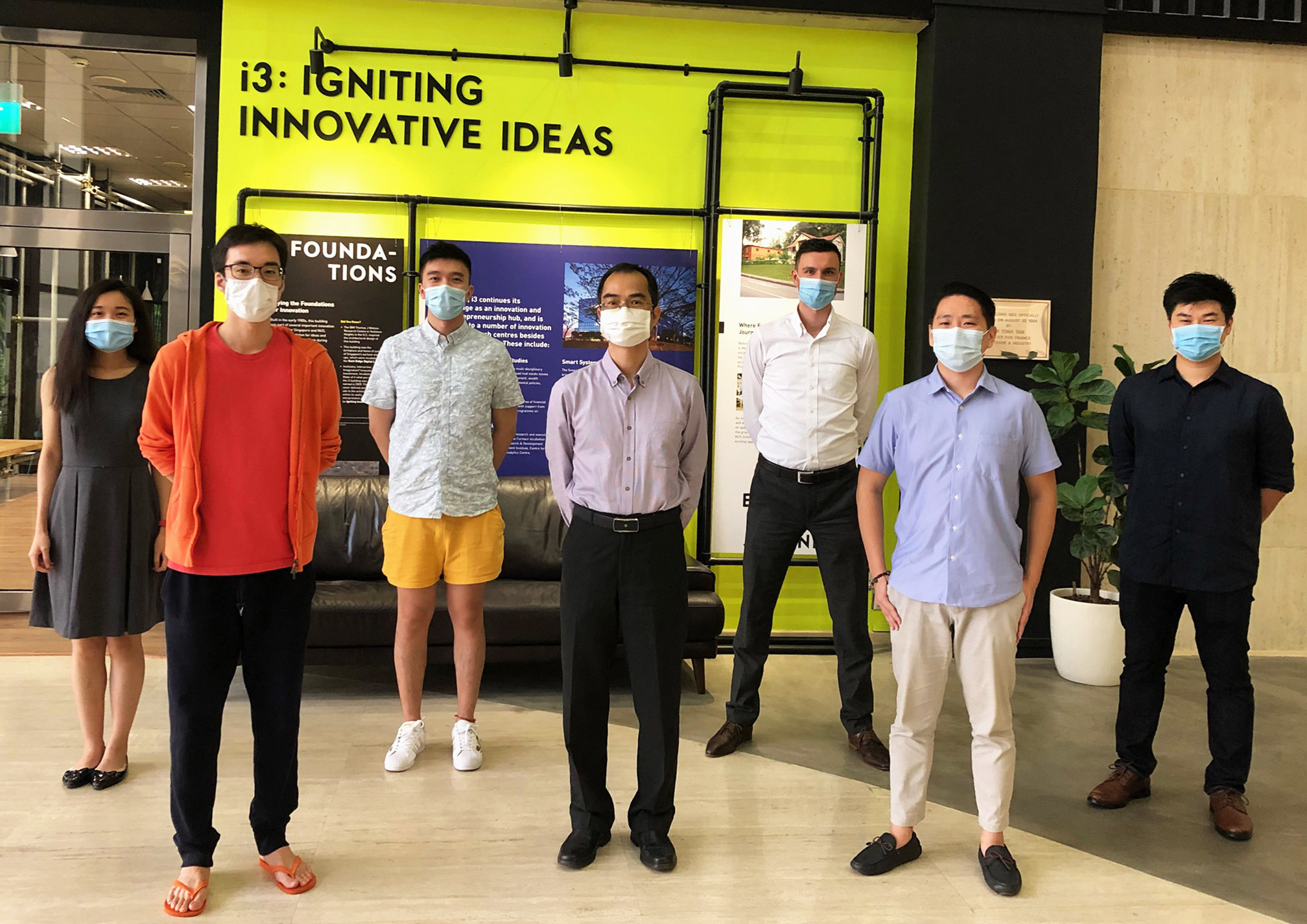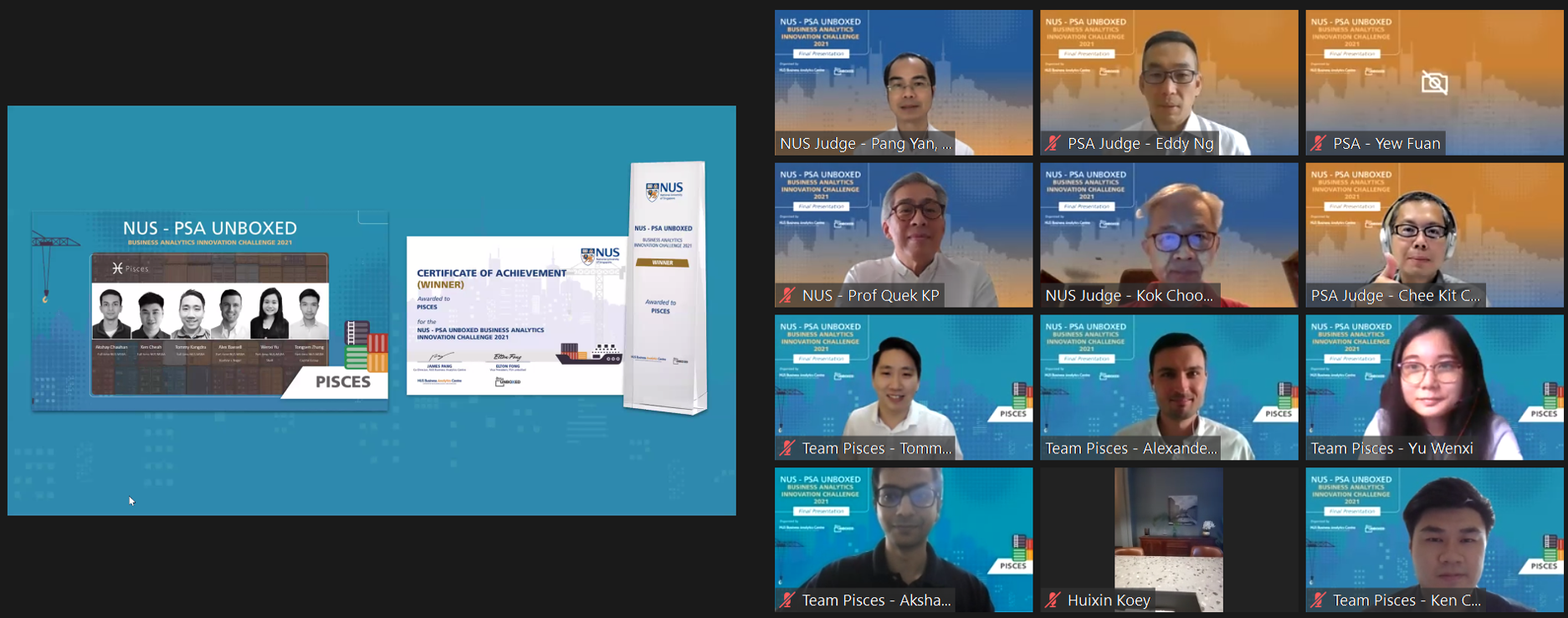To the uninitiated, analytics might seem like a dry subject. Practitioners might have a reputation for being more comfortable with numbers, formulae, predictive models, and computers than with people. Analytics business units might be seen as non-revenue-generating, and therefore less important than other departments such as sales, account servicing or marketing. What if we challenged these notions? What if you learned that analytics could be highly intense and competitive, that such a department could spell success or failure in process improvement and business transformation efforts? Buckle in as we hop on a ride to learn more about analytics with National University of Singapore (NUS) Master of Science in Business Analytics (MSBA) graduate Tommy Kangdra.
Tommy, a recent graduate of the MSBA programme, currently works as a data scientist at a technology startup. We sat down with him in an interview to ask a few questions about what it is really like to study analytics and work in the field.

Interviewer: Please tell us a bit about yourself, Tommy.
Tommy: I have an undergraduate degree in Mechanical Engineering, and had previously worked as a process engineer. I spent eight years working at several companies, including Micron and Eaton Industries, during which I attained a Six Sigma Green Belt. From this experience, I started to understand how important statistics is within the manufacturing field. This inspired me to learn more about data analytics, and the importance of its interpretation in industries. Eventually, I enrolled in the NUS MSBA programme.
As an engineer, my work scope included process improvement, which, as the name implies, involves reviewing and enhancing processes. Statistical analyses are an important part of this. Changes to a work process, when run at a large scale, may produce errors that did not happen during small batch testing. By studying the statistics of these failures, we can determine whether the incorporated change is effective and can be adopted in the work process. If the statistics are measured and interpreted correctly, this translates to a process improvement as well as possible cost savings for the company.
Interviewer: What was life like as a student in the MSBA programme?
Tommy: I enjoyed the camaraderie with my classmates. There was a passion for learning about data science & machine learning among classmates, so much so that we found ourselves discussing topics on data science during our free time and gatherings! This shared desire to pursue and achieve success within this area not only made learning about this field more interesting, but pushed me academically and increased my knowledge as a data scientist too.
As students in the MSBA programme, we had opportunities to participate in various competitions at the University as well as international levels. I really appreciate that these opportunities were readily available to us, even for me as a full-time student who would complete the programme in only one year. I participated in two competitions during my time in the programme, Chengdu 80 and the NUS-PSA unboXed Innovation Challenge.
Interviewer: Can you share more about your experiences at the competitions, especially the Chengdu 80?
Tommy: Chengdu 80 is an international design and development competition, organised as part of the annual conference jointly hosted by the Southwestern University of Finance and Economics (SWUFE) and the University of California, Berkeley’s Consortium for Data Analytics in Risk (CDAR). It is an annual contest that requires teams to develop a working prototype in 80 hours, and then present their solutions to the judges.
I became aware of the competition when our professors forwarded us emails about it. I formed a team (Team Pisces), registered, and competed against four other teams from within the MSBA programme, before moving on to the international-level competition representing NUS.
The challenge posed to teams there was develop a financial investment advisory system that could provide profitable trading strategies to investors, stock traders and analysts based on historical market data. In designing solutions, participants were expected to utilise various sources of data, such as historical transaction data and financial news. The system was also expected to interpret and explain its predictions to help users in their decision-making.
We worked on an innovative, scalable platform to help investors make informed investment decisions, using explainable artificial intelligence (AI) techniques and blockchain technologies. Thankfully, we impressed the judges and we won the first place in the competition.

The next competition we participated in was the NUS-PSA unboXed Innovation Challenge, which we also got to know through our professors. In this competition, our team came up tops too.

I learnt a lot from these competitions. No man is an island, and in the workforce we all have to work in teams regardless of our work specialties.
In Chengdu 80, I was tasked with developing the user interface for our web application for the competition, despite not being familiar with front-end programming language. In the NUS-PSA unboXed Innovation Challenge, I led the modelling aspects of the project while the rest of the team handled other aspects such as developing the dashboard and working on the presentation to the judges.
I would credit the MSBA programme as the secret behind the team’s success at these competitions. The level of teaching as well as the culture in the programme drove us to a high level of performance.
Interviewer: That must have been a fantastic experience. Tell us more about how the MSBA helped you secure a new position.
Tommy: I went for an interview with Synthesis, a tech startup dealing with human-centered data science. The interviewers were very interested in a project that I had done as part of the MSBA programme, Active Monitoring of Depression through Machine Learning. The company deals with a lot of unstructured data, which was the kind of data set I was working with in my project.
They saw this hands-on experience as a strong plus point, and also recognised that I was familiar with the industry. Next, I was assessed on my technical skills, which included a test on Natural Language Processing, which I had studied in the programme. I felt they were very satisfied with what I could offer, since I received a job offer very soon after the interview.
Interviewer: What would you say to people looking to apply for the MSBA programme?
Tommy: I would share with them the reasons why I joined NUS. I was impressed with its reputation as a world-class university in Asia, and it convinced me as a good choice for pursuing a Master’s Degree.
Also, in the field of data science, experience is very important to one’s career. Typically, fresh graduates looking to enter the field would be caught in a Catch-22, because getting a job requires experience, but they cannot get experience without a job.
The MSBA provided me with extensive opportunities to immerse myself in data science, through internships and projects with real-world applications. As I said before, one reason that I was hired at Synthesis was because I could show that there was a crossover between what I did for my project and what work they were doing.
I feel that this course has provided me with a lot of experience and hands-on skills. I can see how professionals in the industry can benefit from and step up their game with this programme. I would highly recommend the NUS MSBA.
Interviewer: Thank you, Tommy, for sharing your story with us. We wish you all the best in your future endeavours!